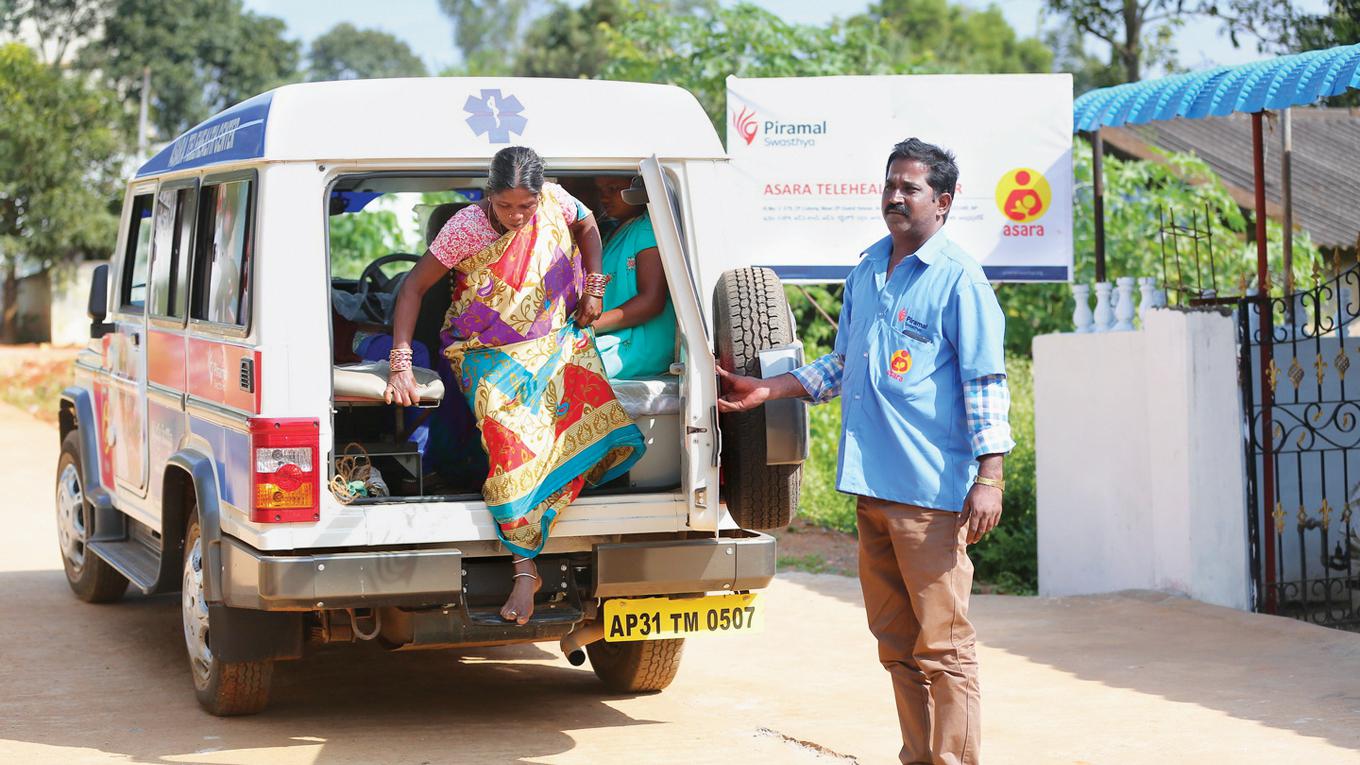-

ASARA assists tribal women through pregnancy and delivery
The ASARA Tribal Health Programme of the Piramal group aims to reduce Maternal Mortality Rate (MMR) by 30 per cent and Infant Mortality Rate (IMR) by 20 per cent in the tribal areas of Araku Valley, Visakhapatnam, Andhra Pradesh in 1,179 habitations by 2020. The programme is implemented through Piramal Swasthya and its model aims to provide pregnant women with access to specialist consultation in areas where there is no/limited availability of healthcare resources. ASARA extends pre- and post-natal care and neonatal care, increasing health-seeking behaviour and promoting 100 per cent institutional deliveries, thus reducing MMR and IMR. It is also intended to provide access to healthcare at their doorstep along with telemedicine services by the specialists. Piramal works in convergence with the Integrated Tribal Development Agency (ITDA) and Integrated Child Development Services (ICDS) which is helpful in better outreach and delivering services in hard-to-reach tribal habitations through capacity building for health workers and education, awareness and behaviour change interventions at the community level. The process followed is as follows. A four-wheeler drops Piramal’s ANMs (Auxiliary Nurse Midwife) to the nearest motorable road after which the ANMs travel on bikes to a point from where they have to ‘hike’ to reach the habitation. The farthest such habitation, Nanda is 36 km away from the base. Once in the habitation, the ANM identifies every pregnant woman and neonate. They are registered after basic tests are conducted which is a part of the examination. The pregnant women are provided with counselling on healthy practices to be followed during the pregnancy. The next day, the four-wheeler is sent to pick up all pregnant women registered the day prior and gets them to the Tele-Health centre where a nurse collects a detailed history followed by a consultation with an expert gynaecologist, who is connected virtually with the help of IT-enabled software. Free medication along with nutrition supplements is also provided to the women at the Tele-Health centre. They are then dropped back to their habitation. At the time of labour, Piramal’s ANM is intimated who then picks up the woman (the woman reaches the motorable road on a palki) and shifts her to a government health facility for safe delivery. The ANMs handhold these women and children throughout their pregnancy, childbirth and neonatal period while keeping the government machinery in the loop. A direct outcome of the programme was that institutional deliveries increased from 26.6 per cent in 2010 to 59.3 per cent in 2017. The Infant mortality rate decreased from 47.1/1000 live births to 12.7/1,000 live births during the same period. Piramal Enterprises’ funding towards this project has been to the extent of Rs5.36 crore. Piramal Swasthya is in conversation with the Women & Child Development Department for the expansion of its ASARA Tribal Health Programme across other tribal areas of Andhra Pradesh, with an objective of making the tribal communities healthier. Capacity building interventions for field health workers on early identification of Severe Acute Malnutrition (SAM) and Moderate Acute Malnutrition (MAM) children, their monitoring and referral, community education and awareness setting up model nutrition hubs at Anganwadi Centres, and working towards sustainability aspect by promoting livelihood generation programmes through nutrition interventions are planned to be the focus of this partnership. The programme also seeks technical and funding partnerships to enhance delivery and outcomes. The programme is also being advocated with NITI Aayog for policy level discussions to get implemented in the high priority tribal areas across India.
Biogas
BioEnergy will showcase its innovative biogas technology in India
Mobility
Ather aims to produce 20,000 units every month, soon
Green Hydrogen
German Development Agency, GIZ is working on a roadmap for a green hydrogen cluster in Kochi
Renewable Energy
AGEL set to play a big role in India’s carbon neutrality target



















